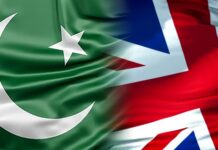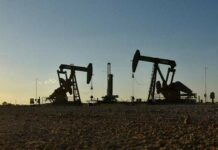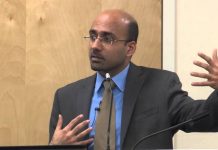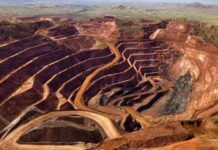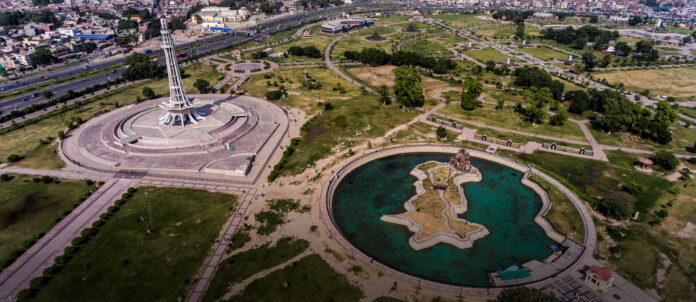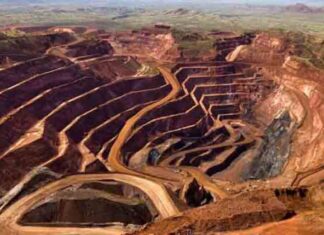It has been called Pakistan’s answer to Dubai, a brand new multitrillion-rupee development of towering skyscrapers, futuristic domes and floating walkways.
But Ravi Riverfront City, described as the “world’s largest riverfront modern city” also faces accusations of rampant land grabs by Prime Minister Imran Khan’s government, which has championed the project.
Hundreds of thousands of farmers who could never afford to live in the modern urban utopia are now at risk of eviction, Guardian reported.
As well as the human cost of the development, being built on a 40,000-hectare (100,000-acre) site adjacent to Lahore, many fear it will wreak environmental devastation to the Ravi river, currently undergoing ecological restoration, and surrounding forests.
According to the government, the new city will be an alternative to London and Dubai for local and foreign tourists, create millions of jobs and alleviate pressure on land in Lahore.
Khan has been supportive of the project, describing it as “essential” for Pakistan’s development. The government says $8 billion in foreign money has now gone into the project with the biggest investors coming from China.
However last month, a Lahore High Court judge found “gross irregularities” in the Ravi riverfront project and said it would benefit land developers.
To oversee the implementation of the city, the Ravi Urban Development Authority (Ruda) was established last year. But in a move that opponents described as “draconian and unprecedented”, the government bestowed complete legal immunity to Ruda so that no lawsuit or legal challenge could be filed against the project or anyone working on it.
The government has also applied Section 4, which means it can legally acquire any land for public purposes, even though Ravi Riverfront will be a commercial enterprise.
In recent months, thousands of farmers and residents on the land where the city is to be sited have gathered to voice their opposition. The Punjab state government responded by pressing charges against 90 of the protesting farmers.
Of the 41,000 hectares (102,271 acres) the government will acquire on behalf of the private developers, 85 percent is agricultural land occupied by almost a million farmers, labourers and business owners.
Many claim that the government is refusing to pay market value for farms, instead declaring their land almost worthless.
“The government is snatching our land for urban development and displacing us from farms we have occupied for centuries,” says Chaudhary Mahmood Ahmed, 65, a fourth-generation farmer whose land lies within the 46km-long stretch of the river where the new city will be built.
Ahmed says 50 people depended on his farm for their livelihoods and compared the actions of Khan’s government to those of the East India Company, the British trading company that notoriously colonised parts of India in the 18th and 19th centuries.
“They are snatching land from poor people,” he says. “It is unacceptable to us.”
Muhammad Munir is among those who have been growing potatoes and livestock feed for decades. He says the area’s farmers are essential to supply the 13 million people of Lahore with fruit and vegetables, as well as 70 percent of the city’s milk.
Munir says: “The government has been declaring our fertile lands as barren so that they can snatch them from us for pennies. We would die and kill for our lands. This is a life and death situation for us.”
Many speak bitterly of land being snatched away to benefit Pakistan’s elite.
“The government is taking the roof from over our head. They are offering so little as compensation,” says Bushra Bibi, 65, who lives with her five children in a one-room flat on designated Ravi Riverfront land.
“We cannot rebuild a house with this tiny amount we will be given. We will become homeless.”
While the project was first conceived by a previous government in 2013, it was declared impractical and dropped. An initial feasibility study found it would be almost impossible to supply enough water to the development without $3 billion in new infrastructure.
But with Pakistan’s economy nose-diving and the government keen for projects to boost recovery, the Ravi Riverfront project was picked up again by Khan’s administration two years ago and given the green light.
Mian Mustafa Rasheed, head of the Ravi Urban Development Victims Committee, says it is a plan solely for “industrialists and the land mafia who have close ties to Khan’s government”, and alleges that the authorities “have been threatening people individually to stop them protesting against the project”.
The government and Ruda did not respond to multiple requests for comment.
However, speaking to a newspaper, Ruda chief executive officer Imran Amin said that “we have started implementing the compensation package prepared specially for the landowners and affectees of the country’s first and biggest urban project”.
The true environmental impact of the project is still not known as no assessment has been carried out. WWF-Pakistan has already submitted a challenge to the project, stating that the plans to “concretise the natural floodplain of the river” was in “clear violation” of the recommendations of the Ravi River Commission, a body with a legal mandate from the high court to restore the natural ecology of the river.
“Lahore is already famous for its pollution but if they build this Ravi Riverfront development next to it, pollution will just double,” says Rafay Alam, a lawyer and environmental activist.
“It is just so absurd.”


